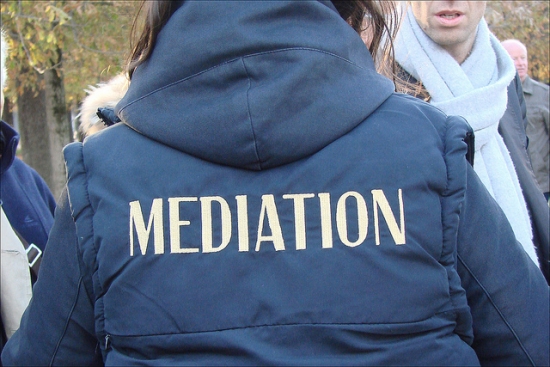
Photo Credit: http://www.flickr.com/photos/dalbera/6275331005/sizes/z/in/photostream/
“I want my day in court!” Reality check: would you, really, want to endure a court trial? What it involves is months spent with your lawyer, those crazy fees and a gladiatorial contest in which you are the unarmed intended victim, unpractised in the art for which the lawyer cross-examining you has been trained - destroying a witness’s credibility for a lifetime. That is the reality of a trial. Would an overloaded judge dealing with over 2,000 cases a year really do a better job at resolving your conflict than you would, given the right professional support? Would you really want that or, if you find yourself locked in a dispute, would you prefer alternative dispute resolution?
If there is one thing worse than a trial, it is a trial in a language which you do not, or do not fully, understand. Even representation in negotiations by a lawyer can be a nightmare if he spends hours shouting in Hebrew at, and being treated likewise by, another Hebrew-speaking lawyer. How do you stay sane in that environment?
Today there is an alternative here in Israel in a form that is user-friendly to Anglos.
Mediation is not new to Israel but recently its use has grown massively. It is a faster, cheaper and more direct process than litigation - and worth considering if you have an intractable conflict with another person or company, be it your partner or spouse, a work colleague or even a neighbor.
So what is mediation all about? Put simply, mediation is a facilitated negotiation process. The mediator, being a professional neutral third party, trained and experienced at managing and facilitating negotiations, assists the parties to the dispute to reach an agreed solution.
To say that a mediator is “trained and experienced” is to invite a study of that capacity and profession: what the mediator has been trained to do is to introduce the participants to a calm and focused environment which is forward-looking, constructive and collaborative, in the joint enterprise of settling their dispute by agreement. That happy result will be achieved by assisting each party to detect and understand its own needs and interests as well as recognizing those of the other party. The mediator will then identify and share with the parties not only what divides them, but also what they have in common and what the issues are that have to be resolved in order to reach an agreement. Finally, the mediator will assist the parties in exploring and evaluating potential alternatives and solutions to the conflict.
The mediation itself is conducted in a manner that gives each participant a chance to speak and be heard, and, not less importantly, the chance to listen, perhaps for the first time, to what the other has to say. When conducted professionally in a suitable neutral location and in an atmosphere in which equality of treatment and time is accorded to both parties, mediation has a proven result of significantly increasing the chances of the conflict being resolved.
Finally, as to the way in which this is important to Anglos whose Hebrew may be less than perfect, studies show that when in conflict, people become self-absorbed, which results in many cases in feeling less confident, impatient and less articulate. It is in those situations exactly that you would want to have a mediator who can understand you and communicate with you in the best possible way. Native English-speaking and bilingual mediators bring with them proven professional experience, but without the language posing a barrier.
Mediation in English offers a respectful, affordable solution to something that can otherwise be alien, costly and painful, in a reasonably short time frame with minimal fuss and total confidentiality.
The writers are both English speaking mediators and lawyers based in Raanana.
© 2012 Orat Benyamini and Howard Epstein
 ESRA Golf Competition 2012
ESRA Golf Competition 2012 Upside-Down Coffee – for another world. A Review
Upside-Down Coffee – for another world. A Review If I could tell you - a review
If I could tell you - a review-1372524003.jpg) the key question
the key question  advantages of the living trust
advantages of the living trust Chaim BePlus
Chaim BePlus